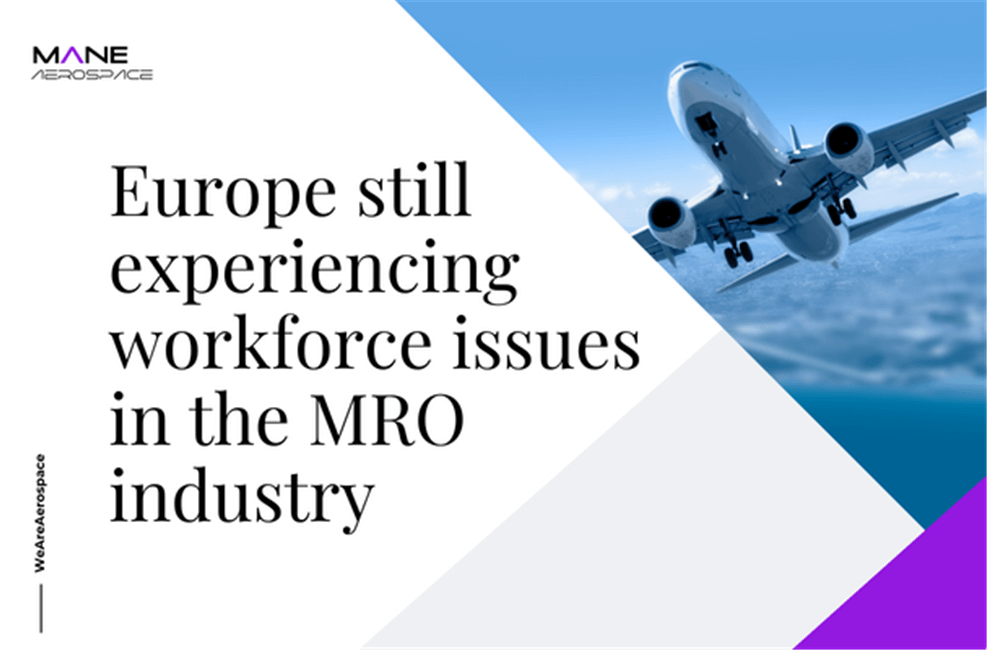Europe still experiencing workforce issues in the MRO industry
21 Dec, 202210 minsAt the height of the pandemic, a lot of people expected the MRO industry to become flooded w...

At the height of the pandemic, a lot of people expected the MRO industry to become flooded with an increased number of aircraft retirements, especially as COVID led to a large number of aircraft being destroyed. However, this has yet to happen. A lot of carriers are opting to keep their assets, and a much smaller number entered bankruptcy than first thought. This, once paired with OEM supply chain constraints, has meant that there is a growing demand for used serviceable material (USM). A lot of experts put this down to carriers making financially driven decisions around aircraft retirements, and the difficulty in replacing aircrafts due to OEM backlogs.
The MRO industry’s growing workforce shortage
A lot of companies who attended MRO Europe had workforce shortages to worry about. Now that the demand for aircrafts has returned post-pandemic, a labour shortage is threatening the industry. Though efforts are being made to encourage young people to join the MRO industry, technicians who left the workforce during COVID-19 are hard to replace.
Many workers are looking for increased salaries, but this also means increased costs for the customers. This is why some companies are looking for labour elsewhere, such as in India and Pakistan, in the hope of filling positions in Europe. Even if salaries did rise, finding talent is tough. One option is to work closely with universities, but carriers can only do so much to attract young people to the industry.
The time it takes to get the qualifications needed to work in the MRO industry is also a challenge. Simply, a lot of people don’t want to spend five or six years training to become a licensed engineer. The time commitment is something that discourages people that are looking for a career change. This is why it’s important for MROs to showcase a clear path through the industry, giving potential employees a clear idea of what’s achievable.
Engine MRO networks are a challenge
Meeting production demands from airframe manufacturers is something else that OEMs could find challenging. OEMs have required a lot of aftermarket support in the last year or so, especially when it comes to meeting the demand on engine types. At the moment, one solution seems to be certifying engine MRO providers, and this was mentioned at MRO Europe by two specialists who announced plans to accommodate next generation engine models. For example, Iberia Maintenance announced plans to introduce services for the PW1100G at MRO Europe. It will get its first engine next year, and services will focus on lighter engine repairs before ramping up further down the line.


